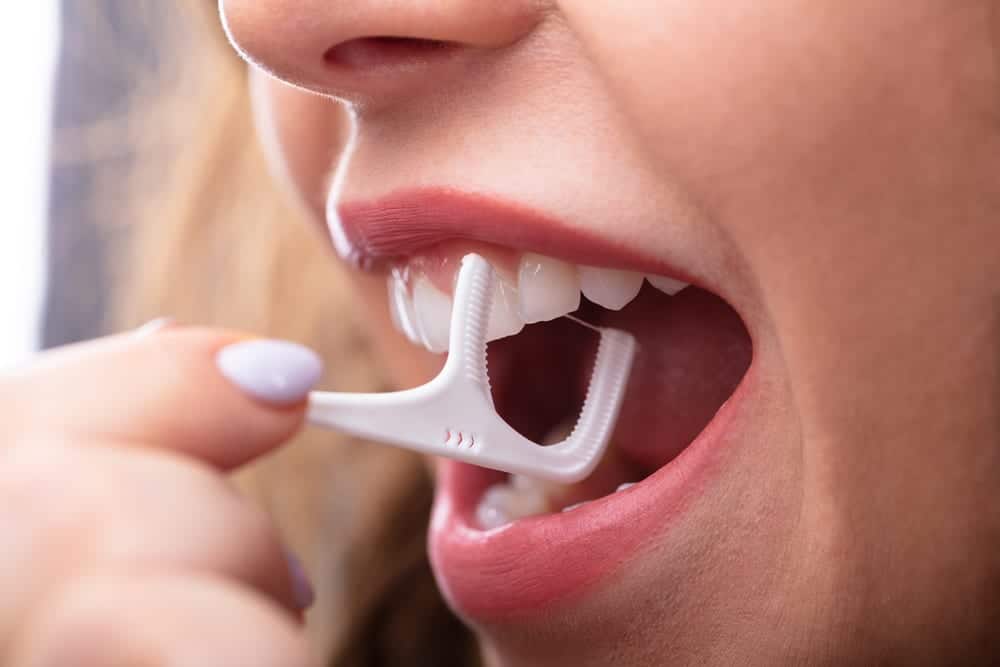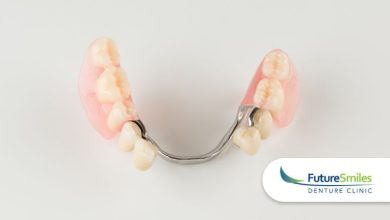Are Dental Flossers As Effective As Regular Floss?

Dental flossers are not as effective as regular floss for maintaining oral hygiene. Dental flossers are tiny plastic tools that can be difficult to maneuver in tight spaces, making it hard to clean properly between the teeth and along the gumline.
Regular floss, on the other hand, allows for better control and flexibility, ensuring a thorough cleaning. While dental flossers are convenient for on-the-go use, they should not be solely relied upon for oral care. Regular floss remains the gold standard for removing plaque and preventing gum disease.
Good oral hygiene is crucial for maintaining a healthy mouth and preventing dental problems. One of the key components of oral care is flossing, which helps remove plaque and food particles from between teeth and along the gumline. While dental floss has been the traditional tool for this task, dental flossers have gained popularity in recent years due to their convenience and ease of use. However, the question remains: Are dental flossers as effective as regular floss? We will explore the differences between dental flossers and regular floss and determine which one is more effective for maintaining optimal oral health.
The Differences Between Dental Flossers And Regular Floss
When comparing dental flossers to regular floss, there are several key differences to consider. One major distinction lies in their respective designs and forms. Dental flossers feature a handle that holds a small length of floss, making it easier to maneuver and reach tight spaces between teeth. On the other hand, regular floss comes in a spool or a pre-cut length, requiring manual dexterity to hold and control the floss.
In terms of ease of use and convenience, dental flossers offer a more user-friendly experience. They are particularly beneficial for individuals with limited mobility or dexterity. The handle allows for a firmer grip, ensuring greater control while flossing. Regular floss, although effective, may take some time and practice to master the proper technique.
When it comes to effectiveness, both dental flossers and regular floss can effectively remove plaque and food debris from between the teeth. However, some variations exist between different types of flossers and regular floss. It is crucial to choose the right floss or flosser that suits your specific needs and oral health requirements.
Effectiveness Of Dental Flossers
Dental flossers are a convenient alternative to traditional flossing methods. Numerous research and studies have shown that dental flossers can be just as effective as regular floss in removing plaque and preventing gum disease.
Research has indicated that the design of dental flossers allows for easier access to hard-to-reach areas in the mouth, making it easier to clean between teeth. This can result in a more thorough and efficient cleaning compared to regular floss.
Using dental flossers also offers several benefits. First, they are easier to handle, especially for individuals with dexterity issues or braces. The pre-threaded floss and ergonomic handles make flossing a breeze. Additionally, dental flossers are disposable and come in travel-friendly packages, making it convenient to maintain oral hygiene while on the go.
In conclusion, dental flossers have been found to be as effective as regular floss in cleaning between teeth and preventing gum disease. Their convenience and ease of use make them a practical choice for maintaining optimal dental hygiene.
Effectiveness Of Regular Floss
Regular floss is considered the gold standard for maintaining oral hygiene. Research and studies have consistently shown that traditional flossing methods effectively remove plaque and food particles from between the teeth, leading to healthier gums and lower risk of dental diseases.
Flossing with regular floss allows for better control and flexibility compared to dental flossers. The ability to wrap the floss around the tooth and scrape it against all sides enables more thorough plaque removal. This is especially important for reaching tight spaces and areas where the teeth are closely positioned.
Regular floss also offers additional benefits. It helps stimulate blood circulation in the gums, promoting their overall health. Moreover, regular floss is generally more cost-effective, readily accessible, and environmentally friendly than dental flossers.
In summary, research supports the effectiveness of traditional flossing methods in maintaining oral health. Regular floss allows for better control, flexibility, and thorough plaque removal. It also offers additional benefits for gum health and is cost-effective and environmentally friendly.
Factors To Consider When Choosing Between Dental Flossers And Regular Floss
Factors to consider when choosing between dental flossers and regular floss are personal preferences and needs, oral health conditions and concerns, and professional recommendations.
When it comes to personal preferences and needs, some individuals find dental flossers more convenient and easier to use due to their design, which typically includes a handle and pre-threaded floss. Regular floss, on the other hand, may be preferred by those who prioritize eco-friendliness or have specific dental conditions that require a certain type of floss.
Oral health conditions and concerns are important considerations as well. For individuals with braces, bridges, or wider spaces between teeth, dental flossers with specialty attachments can be more effective. Regular floss, however, provides more control and maneuverability for reaching tight spaces or areas with gum recession.
Professional recommendations should also be taken into account. Dentists or dental hygienists can provide guidance based on an individual’s specific oral health needs. They may recommend one option over the other depending on factors such as gum health, sensitivity, or the presence of dental restorations.
Tips For Properly Using Dental Flossers And Regular Floss
When it comes to dental hygiene, using dental floss is an essential part of maintaining a healthy smile. Whether you choose to use dental flossers or regular floss, the key is to ensure thorough cleaning and gum health.
Tips for Properly Using Dental Flossers:
| 1. Hold the flosser: | Grasp the handle firmly, and position the flosser between your thumb and index finger. |
| 2. Glide the floss: | Gently guide the flosser between your teeth, moving it back and forth to remove plaque and debris. |
| 3. Dispose and repeat: | After flossing each tooth, discard the flosser and use a new one for the next tooth. |
Correct techniques for using regular floss:
- 1. Cut a piece of floss:
- Take about 18 inches of floss and wind it around your middle fingers, leaving a few inches to maneuver.
- 2. Slide the floss:
- Gently slide the floss between your teeth, curving it into a C shape around each tooth.
- 3. Clean each tooth:
- Move the floss up and down along the sides of each tooth, ensuring you reach the gumline.
Remember, whether you prefer dental flossers or regular floss, using the correct techniques and being consistent with your oral hygiene routine will help keep your smile bright and gum health optimal.

Credit: www.wilkdental.com
Frequently Asked Questions Of Are Dental Flossers As Effective As Regular Floss?
Are Flossers Just As Good As Floss?
Flossers are just as good as traditional floss for cleaning between teeth. They are convenient, easy to use, and can effectively remove plaque and food particles. Flossing, whether with floss or flossers, is essential for maintaining good dental hygiene and preventing gum disease and tooth decay.
Are Flossers Better Than String Floss?
Flossers and string floss are equally effective for removing plaque and food particles. Flossers are easier to use for some people, while others prefer traditional string floss. Ultimately, it comes down to personal preference and what works best for you.
Why Don T Dentists Recommend Floss Picks?
Dentists don’t recommend floss picks because they may not effectively clean between teeth, leading to potential plaque buildup and gum disease. Traditional flossing with string allows for better maneuverability and thorough cleaning.
Is It Ok To Use A Waterpik Instead Of Flossing?
Yes, it is okay to use a Waterpik instead of flossing. Waterpiks use a stream of water to remove plaque and food particles from between teeth. It’s a convenient alternative to traditional flossing, but it’s still important to maintain good oral hygiene habits.
Conclusion
Dental flossers can be an effective alternative to regular floss, providing convenience and ease of use for those who struggle with traditional flossing. While both methods effectively remove plaque and food particles, it’s important to find the option that works best for your individual needs and preferences.
Whether you choose dental flossers or regular floss, the key is to make flossing a daily habit for optimal oral health.





